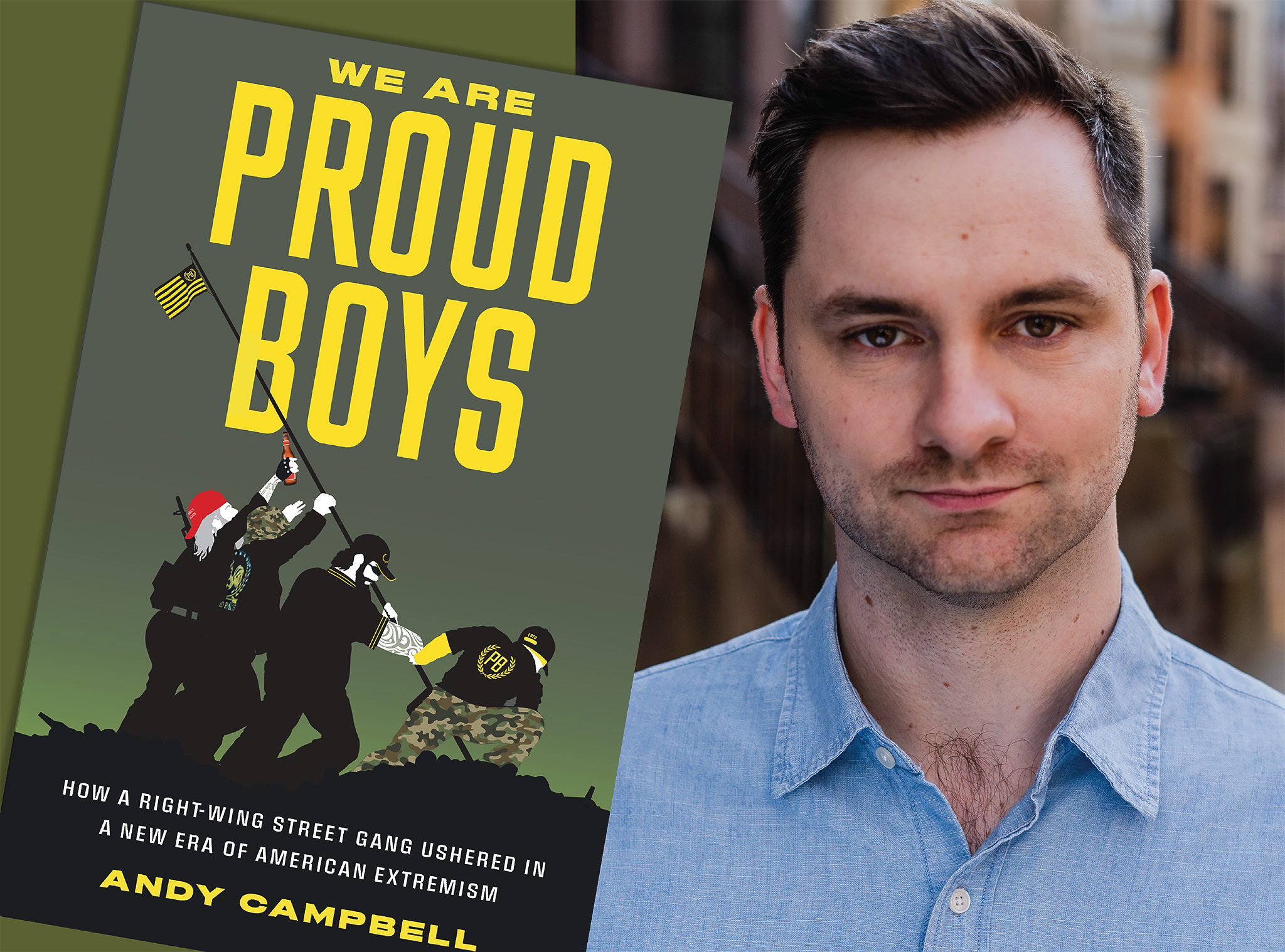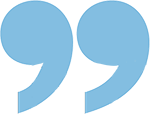Alumni Spotlight: Andy Campbell

From Student to Reporter to Author: Western Alumni Andy Campbell
Story by Lars McDonagh
Andy Campbell graduated from Western Washington University in 2008 right as the economy crashed. But due to his time at Western, he had the skills he needed to pursue a career in reporting, and now, as a published author. His book, We Are Proud Boys, How a Right-Wing Street Gang Ushered in a New Era of American Extremism, was published in September by Hachette.
The new book has earned positive reviews from Kirkus and The Guardian, which called it, “a smart, well-written and brilliantly reported book about another loathsome progeny of the most dangerous union of our time, the horror couple responsible for so many of the burgeoning threats to American democracy: Donald Trump and the internet.”
The seeds for the book were planted when Campbell covered the 2017 “Unite the Right” march in Charlottesville, Virginia. He has since become a national expert on the Proud Boys, including appearing on Democracy Now!
Campbell, who works as a senior editor and reporter covering crime and extremism for HuffPost, spoke to Carolyn Nielsen’s reporting class in October about his book and his career trajectory. During this talk, he recounted how his career was launched by saying yes to every opportunity.
“I think that the first opportunity that I had was to start working at The Bellingham Herald. I think it was like six o’clock in the morning, or five thirty,” Campbell said. “And they came in and asked who wanted to be an intern. I think it was the only one to raise my hand.”
Campbell’s initiative that day launched his career as a reporter. The Bellingham Herald ignited his passion for on-the-spot reporting. From there, he moved to his first full-time job as a reporter with Centralia’s The Chronicle.
Halle Jordan, a student in Nielsen’s reporting class, said she felt inspired by Campbell’s initiative to take any opportunity.
“He’s so on the money with getting an early start and just doing whatever you can,” Jordan said.
She noted that Campbell urged students to persist, adding, “Because I don’t necessarily always get right back up when I get knocked down in that way. So that was inspiring for me.”
When Campbell moved to New York, he found his first job by walking up to a guy who was chain smoking and reading a newspaper. Campbell said he intuitively knew the man was a reporter. They chatted, the man brought Campbell to his editor, and that day he was sent off on a mission to find a missing source for a story.
“Western really sort of got the willies out in terms of being nervous about approaching people and being compassionate and wanting to tell their story,” Campbell said. “I mean, I’m able to walk up, you know, with confidence and talk to anybody on the street today, and I absolutely give a lot of credit to Western’s program for that.”
Campbell knew he wanted to be out on the streets reporting. Saying yes to every opportunity that Western provided him helped sculpt his interests.
“I think it’s important for any reporter to get out there and try a bunch of different things before they set their sights on a beat,” Campbell said in an interview. “It’s kind of like, deciding what you want your major to be when you’re still in high school. I mean, it’s just not really possible and not really advisable until you get a little sampling of a bunch of other stuff.”
After working for the Brooklyn Paper, Campbell reported for the New York Post. Campbell then found a position with HuffPost news reporting on crime and breaking news such as mass shootings and natural disasters.
Campbell’s career path took a turn as MAGA rallies went from protests to riots. “We started seeing a lot more political violence where you’d normally just see people holding up signs at protests, shouting and marching,” Campbell said.
The Proud Boys stood out to Campbell because they wanted to be known for their extremist views. Their desire to talk to reporters about their activities was different from previous extremist groups.
Violent rallies were just the beginning of his reporting on the extremism beat.
At first, Campbell struggled to transfer his journalism writing skills to book writing. His publishers gave him the direction of writing every chapter as its own 5,000-7,000 word feature and he was off and running. The next hurdle was adding his own opinion to the piece, which really threw him off as a reporter. But he was able to write a book that analyzed the effect of planned violence in our politics today.
“I wanted this book to be a primer for regular people to understand the whole extremism, crisis, and process by which we take that information in,” Campbell said.
For example, the Carnegie Endowment for International Peace states that in the 11 weeks between the 2020 election and Inauguration Day, armed protesters grew by 47%. Organized paramilitary groups increased by 96%. As for pro-Trump demonstrations, in 2020, 6.2% of all demonstrations were armed. That number increased to 8.8% in 2021.
Even though he covers a violent subject, Campbell believes it’s important for any reporter to take care of themselves after coming back from a story in order to maintain mental health.
Campbell and his wife Tess Owen, an extremism reporter for VICE News, make it a rule that they don’t talk about work at home unless they explicitly ask if it’s okay. To take care of themselves, they take their dog Dolly on adventures, hiking and traveling. Campbell also found a love for cooking, and claims he got pretty good at it during the pandemic. Campbell and Owen met in a bar after covering the Unite the Right rally and their story was featured in The New York Times,
Campbell said his time at Western gave him the power to achieve success in life and career. “I thank Carolyn and so many of the teachers there for showing us just what kind of power we can have. Not just journalists, but everybody.”
